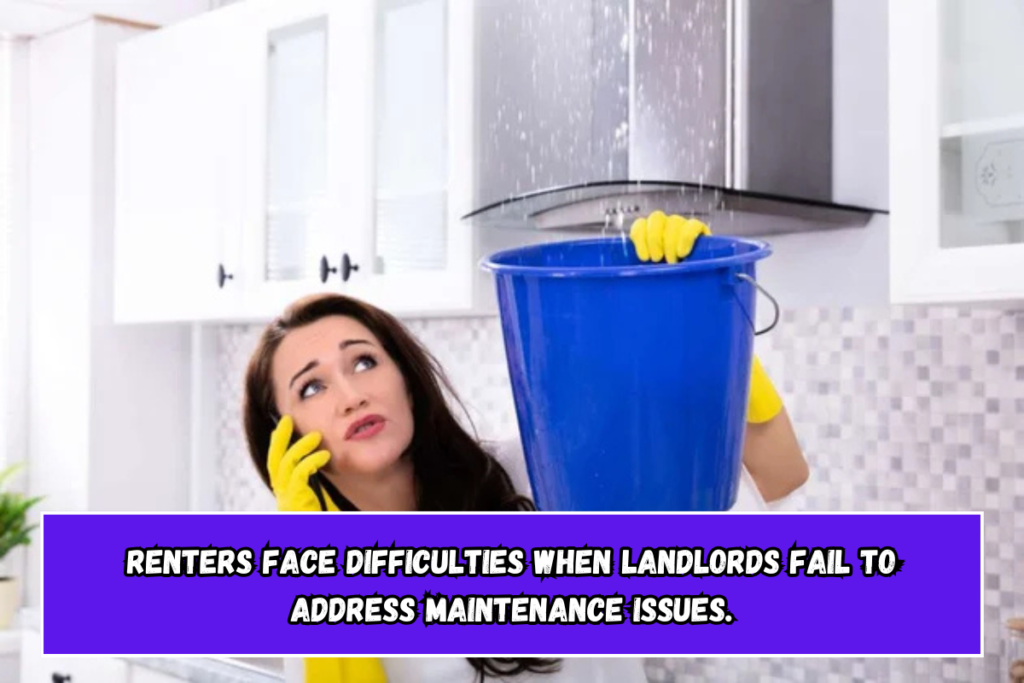The recent attention on living conditions at Aurora apartment complexes brings to light a problem that we talk about a lot in the newsroom. People are calling us when their building doesn’t have heat or water, is infested with pests, or doesn’t have air conditioning during a heat wave.
More and more homes in Colorado are owned by limited liability companies (LLCs). This can make it hard for renters to figure out who is responsible for keeping their home in good shape. We looked more closely at how these changes in the business world affect people in Colorado.
Michelle Colarelli has lived in the same Denver apartment building for 14 years. As a teaching designer at a university, she works from home a lot of the time. The apartment manager was there every day, and she and her son who she raised there never had a problem.
Colarelli said, “The public areas were always clean.” Our laundry room always worked. I never really had a problem. I honestly never had an event to report.” Things changed when the building was sold to an LLC two years ago. A real estate management business now takes care of the property.
Colarelli explained how maintenance problems are now taken care of: “Everything is electronic, so there’s no, hardly, little human interaction.” “You send a ticket.” A lot of the time, fixing something takes weeks. If it does get fixed, you don’t hear much or anything about it while you wait.
That business, Deerwoods Real Estate Management, says in its “About Us” page, “Our most important jobs are to keep our tenants safe and protect our owner’s assets.” Our major goal is to give our owners the best return on their investment possible.
According to its website, Deerwoods operates more than 100 single-family homes and 65 apartment buildings with more than 1,400 units in Colorado.
Deerwoods has, according to a statement from CEO Ben Lauer, “Engaged in implementing a host of capital improvements to improve the security of the building, curb appeal and upkeep, and general living experience for our resident base.” This refers to the building where Colarelli lives.
Colarelli’s rent went up by half over two years. She also says that there were some cosmetic changes made, but that the commitment to safety, cleanliness, and listening to renters isn’t there. She says that the fact that the doors to the buildings don’t instantly lock makes her worry about safety.
“Every time we ask for something, they say they need to get permission from the owner or that an outside company will come help clean or do what we want, and then we have to wait.” A lot of the time, there is no closure, and when there is, it comes so late.
Lauer replied, “We have come to the conclusion that the building is being managed correctly, and many of the points of view you have been given seem to be lacking at this time…” In terms of cleaning, maintenance.
and responding to work orders, our staff is usually at this building once a week, we have a professional cleaning and grounds service, and we ask our residents for feedback so that we can fix and improve any problems that come up.
We have actually done a thorough unit-by-unit inspection of the building over the past two weeks to get ahead of problems and get feedback from residents. Most of our residents said they were happy living in this building, and some did make ideas about small things they would like to see happen.
We have taken note of these suggestions and are working on them. Also, the fire department just checked out the building and confirmed that there are no safety or code problems.
However, Colarelli says it takes a lot of work to get people to care about upkeep, and it’s affecting her mental health. Zach Neumann of the Colorado Economic Defense Project says that his group often sees renters like Colarelli who are upset because their landlords aren’t paying attention.
Neumann said, “Housing is very important.” It’s really hard for people in Denver and across the state of Colorado to live and survive when the thing they need most is owned by an unnamed LLC that is owned by another anonymous LLC that is owned by yet another anonymous LLC.
Neumann says that prices tend to go up while quality of life goes down when homes are bought by LLCs that are far away from the people who live there.
“The folks who own the property are so so distant from the people receiving the service that there’s really a loss of connection between the two sides of the equation,” said Neumann. We asked for public records to find the worst code breakers in Aurora and Denver and then tried to find out who owned the things they were breaking.
A major offender in Denver is owned by CBZ Property Management, the same company that owns the buildings in Aurora that are causing all the trouble. The complex on Nome Street and the many people who had to move out are a very bad example of what can happen when the relationship between a renter and a landlord is broken beyond repair.
But Drew Hamrick of the Colorado Apartment Association says that the laws about rental living are now so complicated that only a very experienced real estate company could figure out how to follow them. A guide is put out by the Association.
“The current status of that book is here, this is phone book size,” Hamrick said. “We’ve made it so complex to own and loan a housing unit to someone else – that people are fleeing the business.”
In his speech, Hamrick said that complicated real estate investments are now commonplace and that they are good for Colorado. This includes investments that are handled by companies outside of Colorado.
“Most of the money that goes into real estate in Colorado comes from folks investing their retirement funds or insurance premiums.” Large amounts of money are invested in homes by trade unions, and it’s good for Colorado that money from outside the state owns property here.
Colarelli wants the investors who want to get the most money out of the place where she lives to know this: “We’re real people.” We really do count. Our homes should be holy places, and when we get there, we should feel at ease and like we belong. And that’s a big problem when we’re not.”
All of our sources agree on one thing: you should always take care of maintenance problems as soon as they come up. Move quickly. Also, get help, whether that means talking to a lawyer or an activist group.
As soon as managers or other residents stop caring about keeping things clean and safe, the quality of life at a residential property drops very quickly. Do some research on property managers as well. Read what other renters have said about them. There are, of course, good managers and bad managers.
The state’s guarantee of habitability law was updated this year when SB24-094, the Safe Housing for Residential Tenants Act, was signed into law. It tells landlords how long they have to talk to their tenants about problems with their tenants and fix them after getting news of a problem with the habitability of a home.


